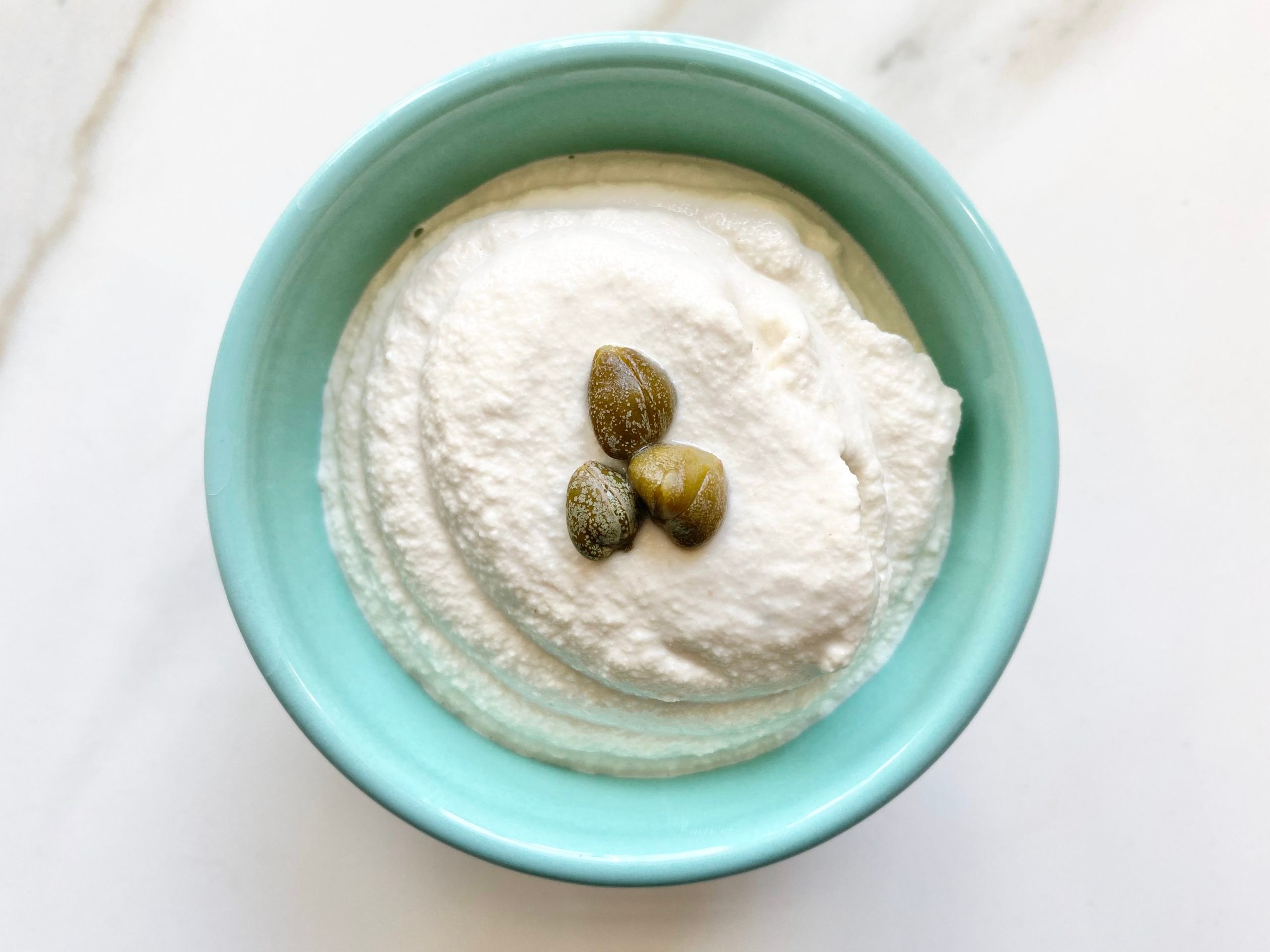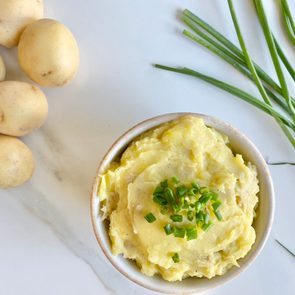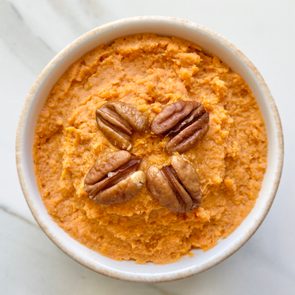How to Make Vegan Sour Cream with Cashews
Updated: Dec. 15, 2020
Registered dietitian and plant-based diet specialist Cynthia Sass shares the dairy-free vegan sour cream recipe she uses as a plant-based substitute for dips and toppings.
Our editors and experts handpick every product we feature. We may earn a commission from your purchases.
A vegan sour cream substitute
You may think of cashews as a snack or treat, but they’re also a versatile ingredient that can be used in a variety of vegan recipes, including savory options, like sour cream. Yes, it may come as a surprise, but cashews make an excellent dairy-free sour cream substitute due to their light and creamy texture. Cashews are also nutrient-rich and good for your health in general. (Learn more about cashew nutrition.)
Health benefits of cashews
One cup of raw cashews, the base of this recipe, provides 20 grams of plant-based protein, along with good-for-you fat, fiber, antioxidants, and a range of vital nutrients, including energy supporting B vitamins, bone-supporting vitamin K, and minerals, including iron, potassium, magnesium, zinc, manganese, and selenium.
Cashews also seem to benefit heart health due to their potential to lower cholesterol, reduce blood pressure, and curb blood insulin levels. That’s a lot of nutritional bang for your bite, or in this case spoonful. And preparing cashew sour cream is incredibly simple.
How to make vegan sour cream
The first step to transforming this luscious tree nut into a creamy dip is to soak the cashews for at least two hours or overnight in the refrigerator.
The drained nuts are then simply pureed with a bit of acid—I used white wine vinegar and fresh squeezed lemon juice—along with filtered water, and sea salt.
Other kinds of vinegar, such as apple cider vinegar or brown rice vinegar, can also be used. (There’s also coconut vinegar. Here’s what you should know.)
How to store and use vegan sour cream
Stash your plain sour cream in the fridge as a base, and fold in herbs, seasonings, or other ingredients as needed. Ideal accompaniments include fresh dill, basil, chives, garlic, dried onion powder, black pepper, and add-ins like sliced olives, a dollop of salsa, or a few capers (as shown here).
Use it as a dip for fresh or leftover roasted vegetables or tortilla chips, or as a topping for baked potatoes, vegan tacos, and hearty plant-based soups, like lentil, black bean, and split pea. (Here’s how to make a vegan cashew “cheese” sauce.)

Vegan Sour Cream Recipe
This ultra-simple recipe is a healthful dairy-free alternative to sour cream and can be enjoyed by vegans and omnivores alike. It’s simultaneously creamy and light, with a delicate flavor and just enough tartness.
Ingredients:
1 cup raw cashews
1 1/2 tablespoons white wine vinegar
1 tablespoon fresh-squeezed lemon juice
1/4 teaspoon sea salt
1/2 – 3/4 cup filtered water
Instructions:
Place the cashews in a bowl, cover with water, and soak in the refrigerator for at least two hours or overnight. Drain and rinse the cashews. Transfer the cashews to a food processor or high-speed blender.
Add the vinegar, lemon juice, salt, and a half cup of water. Blend until you’ve reached the desired consistency, adding more water if needed. Transfer to serving bowl and garnish with herbs or add-ins if desired.
If you’re not a cashew fan, or not up for whipping up a do-it-yourself version, you can buy ready-to-eat dairy-free sour cream. I like Kite Hill’s, made from a wider variety of plant-based ingredients, including almonds, coconut oil and coconut milk, rice starch, and chickpea protein.
Bonus: Replacing more dairy-based foods for plant-based swaps is good for the planet. According to a 2018 review published in the Journal of Dairy Science, dairy farms are a major contributor to total greenhouse gas emissions over the life cycle of milk and other dairy products.
If you haven’t yet tried nut-based dairy alternatives, give them a go. You may be surprised at how much they mimic their traditional counterparts.
Next, beware of the foods you think are dairy-free but aren’t.























